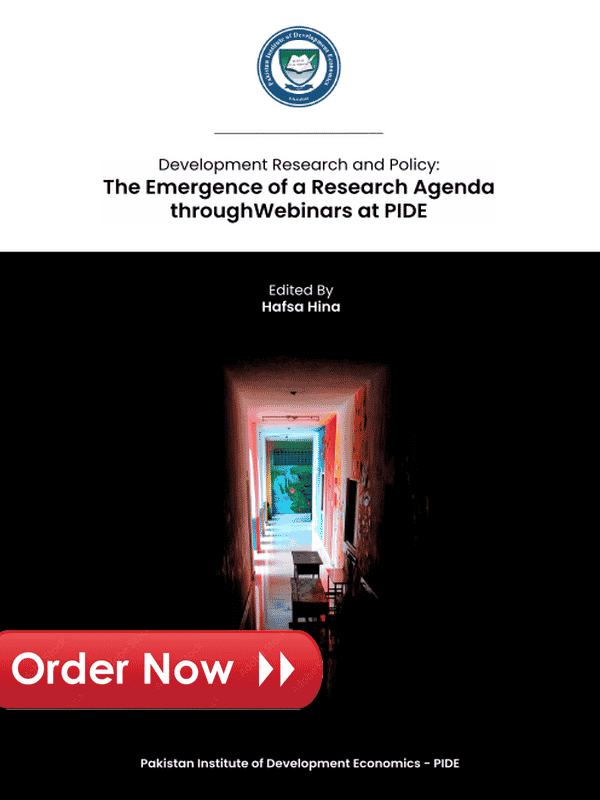
Pakistan Institute of Development Economics
- Home
Our Portals
MenuMenuMenuMenuMenuMenuMenu - ResearchMenuMenuMenuMenuMenuMenuMenu
- Discourse
- The PDR
- Our Researchers
- Academics
- Degree Verification
- Thesis Portal
- Our Portals
Development Research and Policy: The Emergence of a Research Agenda through Webinars at PIDE
PIDE is committed to practical public policy research. It is the oldest think-tank in Pakistan that has always contributed to the policy narrative in Pakistan from planning days to the move to liberalisation and later to developing ideas on growth, poverty, cities, demographics, and society. We have worked hard to clarify our research agenda in coordination with universities, other research agencies, policy-makers, the private sector, regulatory agencies, and various factors that affect policy, economy, and society.
PIDE believes that public policy research must solve critical problems that are impeding progress. To do this, we rely heavily on dialogue and debate. During the last year, PIDE has explored a variety of new areas in its research agenda. To draw upon local knowledge about important issues of the economy, we held a series of webinars engaging people with expertise and experience on subjects such as Pakistan railway, media industry, internet for all, sports industry, city development, the autonomy of SBP, electoral reforms, education policy, pre-budget seminars, aid dependency—not only for funds but also policy and the continuing saga of IMF programs.
PIDE organised a Distinguished Invited Lecture Series. PIDE invited esteemed lobal scholars of unmatched academic excellence; Prof. Cass R. Sunstein, Prof. Abhijit V. Banerjee, Prof. James A. Robinson, Prof. . Michael Spence, Prof. William Easterly, Prof. Daron Acemoglu. This book delivers the details of their lectures and introduces a new angle of thinking to the reader.
Dr. Hafsa Hina and her colleagues have compiled key ideas from these webinars. We have compiled them in this book to help our researchers and students find new topics for research. This book, therefore, offers our economists to learn more about the Pakistan economy than most textbooks.



